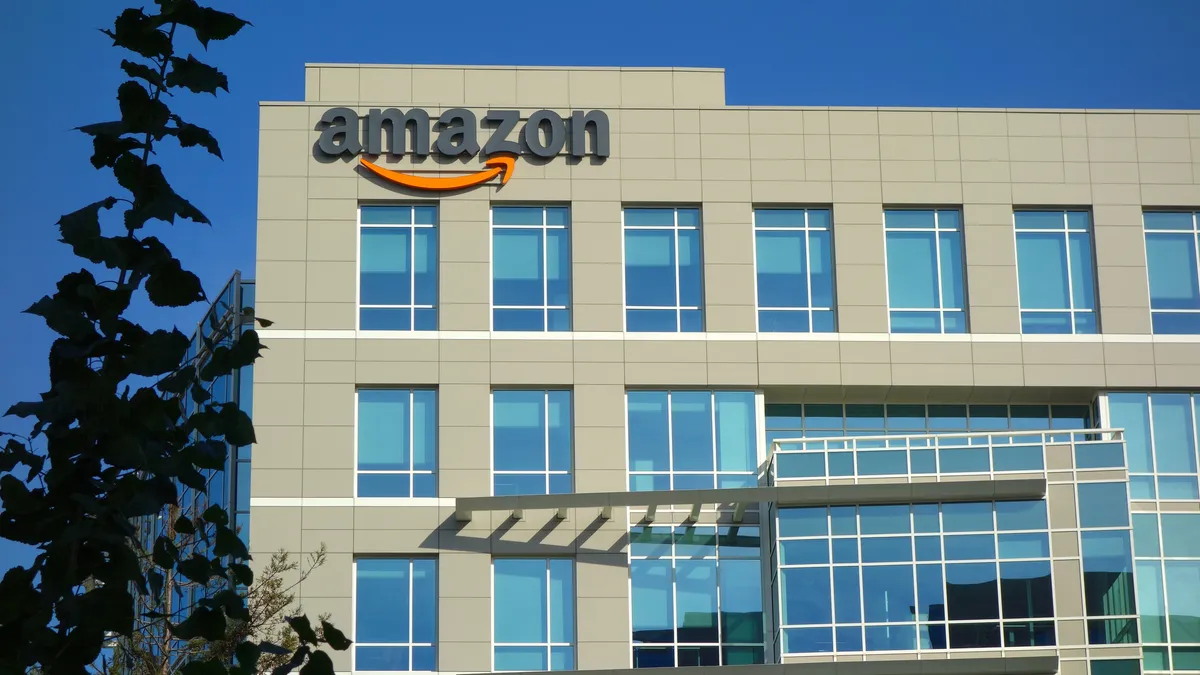Dive Brief:
- Amazon has expanded a pilot program for Amazon Care, a virtual health clinic benefit, to reach more Amazon employees working out of its Seattle headquarters and their families, a company spokesperson confirmed in an email to HR Dive.
- The expansion follows an initial launch of the Amazon Care program in September 2019, the spokesperson said. The benefit aims to give employees faster access to healthcare, without requiring an appointment, including doctor's visits that can be done in-office or at an employee's home.
- Participants can also connect to a physician or nurse practitioner via live chat or video, with the option for in-person follow-up services, e.g. an immunization or strep throat diagnostic test, from a registered nurse, the spokesperson said.
Dive Insight:
The announcement is the company's latest foray into healthcare, following nearly two years of planning and strategic acquisition. Amazon first announced in 2018 that it would turn its focus toward the space via a joint partnership with JPMorgan Chase and Berkshire Hathaway.
The firms tapped surgeon Atul Gawande to head the venture, later named Haven. Shortly after his appointment, Gawande gave few specifics about Haven's goals but did make a statement that captured the sentiment that spurred the initiative, calling employer-based healthcare system "broken." That's in line with what other organizations have observed about employer attitudes toward healthcare. The Business Group on Health (BGH) characterized employer interest in healthcare improvements as "activist," for example.
"The health care industry lags every other consumer-facing industry in meeting the needs of today's on-demand consumers," Brian Marcotte, president and CEO of BGH, told HR Dive in an email interview Feb. 21. "Models like Amazon Care reflect a shift in the market to bring health care to consumers rather than consumers to health care."
Amazon Care is notable in that it integrates in-home or at-work physical consultations together with virtual visits, prescription home delivery and other features in one app, Matt Rust, managing consultant at the Orlando, Florida, office of benefits broker OneDigital, told HR Dive in an email. Rust said Amazon Care shows that the company is taking its customer experience and ease-of-use strategies and applying them to healthcare.
Virtual care applications have grown in recent years, with solutions providers increasingly targeting management of chronic conditions like diabetes and cardiac care management. Large employers in particular are increasingly choosing to adopt such solutions, or plan to do so in 2021 and 2022, according to recent data from BGH. But there are concerns of slow uptake by employees: among employers who offered telemedicine in 2018, only 9% of eligible employees used those services on average, according to a report published last year by Mercer.
The lower utilization seen in such studies may be attributable to processes like pre-registration that are not always intuitive to users, according to Rust. But Amazon's use of centralized navigation might be an advantage. "This will significantly increase adoption as Amazon Care is positioning itself to be the first stop many members may make when seeking care, rather than an afterthought," Rust said.
The company isn't alone in its efforts to change healthcare delivery. Employer coalitions such as the Consumers First alliance aim to address rising costs, and competitors including Apple are bringing back on-site medical care in the form of wellness clinics. Last month, Apple announced it would offer employees free genetic screenings at its on-site clinics.
Care delivery is also one of many avenues for employers as they look to address healthcare costs. Amazon's recent acquisition of online pharmacy PillPack was accompanied by a statement from CEO Jeff Bezos that the company wanted to help customers save time and simplify their lives. Meanwhile, some employers are re-thinking traditional health insurance arrangements, HR Dive sister publication Healthcare Dive reported.














